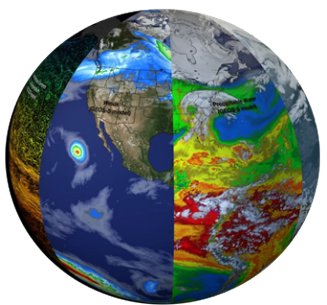MS in Computational Earth Science
Explore the Intersection of Earth Science and Computational Expertise
The Master of Science in Computational Earth Science at the University at Buffalo prepares students to tackle critical challenges in Earth sciences using advanced computational techniques. Whether you're an Earth science graduate eager to master computational research or a computer scientist aiming to apply your expertise to the geosciences, this program is designed to equip you with the skills needed for the 21st-century workforce.
Jump to:
- High Demand for Expertise: The need for professionals skilled in Earth sciences and computational research is skyrocketing, with growth expected to accelerate in the coming years.
- Diverse Career Opportunities: Graduates are well-positioned for roles in industry, government, national laboratories, or academia, including doctoral programs in Earth sciences or computational fields.
- Hands-On Learning: Gain practical experience working with Earth science data and computational techniques.
Photo: NASA Goddard Space Flight Center
The 30-credit program blends core computational courses, enrichment options, and independent research to provide a comprehensive educational experience. Students can choose between a thesis or non-thesis (capstone) track, tailoring their education to their career goals.
Core Computational Earth Science Courses (9-10 credits)
Courses introduce foundational computational methods and their applications in Earth sciences.
2. Foundational Courses in Computational Earth Science (6 credits minimum)
Explore the essential techniques that integrate computational tools and Earth science research.
3. Enrichment Courses in Earth Science (6 credits minimum)
Broaden your knowledge with specialized topics in geology, hydrology, climatology, or related fields.
4. Enrichment Courses in Computational Science (6 credits minimum)
Deepen your expertise with advanced computational methods, algorithms, or data science applications.
5. MS Thesis or Capstone Project (1-3 credits)
- Thesis Track: Conduct in-depth research under the guidance of a faculty advisor. Develop and defend a thesis proposal, followed by an oral presentation and defense.
- Non-Thesis (Capstone) Track: Complete a supervised research project to explore a specialized topic in Computational Earth Science.
The MS in Computational Earth Science at UB empowers students to become leaders in their fields by combining rigorous coursework with practical, real-world experience.


